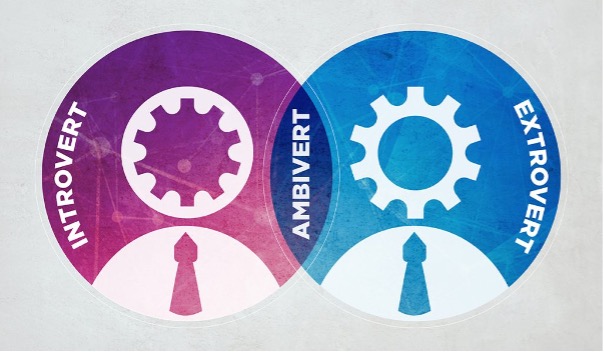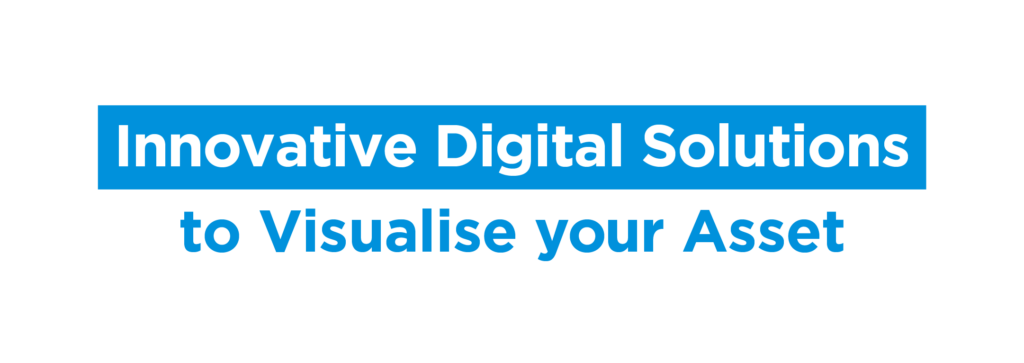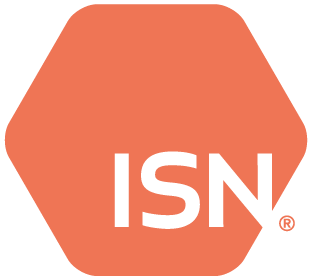
Introverts and Extroverts in Business
The humans of our world are mostly extroverts. 60-75% to be precise, with the remaining 25-40% being introverts. In the business world, the stats are similar, with extroverts taking up approximately 70-75% of entrepreneurship or C-suite roles.
This article explores what it means to be extroverted or introverted, how does extroversion in business compare to introversion in business, what are the challenges faced by extroverts and introverts in business along with my ideas on how to solve them and how can we do a better job of understanding and supporting each other.
This article is written from my perspective as an introvert with one of the rarest personality types for women – INTP.
So buckle up, enjoy the read (ride?) and please share your thoughts in the comments afterwards.
What does it mean to be Extroverted or Introverted?
Without going into the 16 different personality types, the best description of extroversion vs introversion tends to relate to energy and how it is gained and lost. An extrovert will typically gain or draw energy from other people, introverts gain energy by spending time alone.
That is not to say extroverts exclusively want to be around people and talking all the time or that introverts want to be alone all the time.
For example, I have an awareness that after a lovely day with my family of 14, I will be tired. Spending time alone on a peaceful walk with my dog and my thoughts, a swim in the sea or being settled on the sofa with a movie or video game will help me regain energy. It doesn’t mean I don’t enjoy the time spent with my family, of course, but I do need time to recharge.
On the extrovert side, an example would be my friend Carla. Carla is an extrovert who thrives on human interaction, so much so that she runs a coaching business and spends her days talking to people, but equally loves her quiet time writing or gaming. The difference is talking to people all day doesn’t drain the same amount of energy as it would in an introvert. In fact, most days it recharges her energy levels.
How does Extroversion in Business compare to Introversion in Business?
In the world of business, you may be familiar with those who talk first; think later and those who think first and talk later.
As an introvert, thinking first and talking later is my go-to unless put on the spot. Really, I prefer listening and thinking and only want to talk when I have something meaningful, insightful, or valuable to say. Additionally, my brain ‘thinks’ extremely quickly, so translating thoughts into words instantly is not my strength.
This can lead to people sometimes assuming I’m quiet, shy, boring, or sometimes even rude. If I have something to share, others hear the potential wisdom or alternate perspective and suddenly, they see my value. But not everyone sticks around to hear it. Some have already decided I’m too quiet to be valuable.
This is how it can be for introverts in the extroverted world, particularly in business. Similarly, I’m sure introverts make assumptions about extroverts. Perhaps those assumptions are they are loud, ‘talk rubbish’ or ‘never stop talking’. Which isn’t the case.
The assumptions humans make can hurt all of us.
Leadership
When thinking about extroversion in business, I automatically think of leaders. The people who can truly, talk to anyone. They have high energy, are assertive and charismatic. They command your attention.
According to a recent study in the Harvard Business Review, only 2 percent of people in senior leadership roles are introverts. That’s the same amount of people that have green eyes, apparently!
Therefore, it’s not a surprise to me that I think of leaders when thinking of extroversion.
The world is not without introverted leaders, however. A few you may have heard of; Mark Zuckerberg, Bill Gates and Elon Musk. A few historical examples are; Abraham Lincoln, Mahatma Gandhi and Albert Einstein, a fellow INTP.
Introverts have a wide range of abilities that can make them excellent business leaders, especially in entrepreneurship and companies that encourage creativity and innovation.
Critical thinking, listening, thinking outside the box and many tend to excel at written communication. They often bring ideas to the table that nobody else thought of.
Challenges
Many introverts will need to be coached on stepping outside of their comfort zone, especially when they’re involved in public speaking or business social events. They may also take fewer risks and find it harder working in big teams, especially with people they don’t know.
When thinking about the challenges faced by extroverts in Business, I talked to some extroverts in my life to get the low-down.
What came up the most was coming across as ‘loud’, ‘overconfident’, someone who ‘never stops talking’ and challenges with analytical decision making, which in other words, is decision making without emotions. Something that can be crucial in a business setting at times. Some also mentioned making rash decisions without thinking.
My Experience as an Introvert in a job designed for Extroverts
I spent 10 years of my life in a job where I spoke to different people all day, every day. I loved it. However, boy was I exhausted all the time. And that exhaustion often led to irritability, or the overwhelming desire to be alone with a video game.
It wasn’t until leaving that role that the penny dropped for me as to why I was so exhausted.
My Experience as an Introvert in a job designed for both Introverts and Extroverts
The Marketing and 360 Photographer role I have now with ZynQ 360 has been life-changing in terms of the energy I have leftover at the end of the working day. Simply because I’m spending more time thinking and analysing than talking.
I spend time working as a team when I’m away on photography jobs, but the bulk of work is done alone as we each photograph our respective areas of a unit or site. And it’s similar in the office – a great mix of working as a team and working alone, all towards our goal of providing the best visual asset management software and services for our clients.
Managing Strengths and Weaknesses of Extroversion or Introversion
There are a few steps for managing the strengths and weaknesses of your extroversion or introversion. While I can only share what’s worked for me from an introvert’s perspective, I believe these steps are general enough to apply to extroverts, too.
- Building awareness of your own introversion or extroversion traits.
- Identify traits you’d like to develop.
- Manage your energy.
- Practice behaviours that you want to develop.
- Seek support from those who are ‘opposite’ to you.
The first step in managing the strengths and weaknesses of your extroversion or introversion is to acknowledge them. It’s sounds cliché, however, building awareness of your personality type and the traits associated with it is highly valuable for self-development.
As a business leader, having awareness of different traits can also be highly valuable when building a team, whether it’s for a crucial project or long term.
I’m going to touch on how I manage my energy as an introvert, however, if you have questions on any step above, do not hesitate to get in touch with me through LinkedIn.
Managing Energy as an Introvert
For introverts, managing energy is key.
Meeting new people at a networking event? An event with potentially 100s of people, where you will need to ‘switch on your extroversion’ as I like to call it?
For an introvert, just the idea of this could be draining their energy.
Prior to these types of events, I spend time alone doing things I love for as much time as possible in the 24 hours prior to the event and for at least a few hours afterwards. For me, this translates to walking with my dog and thoughts, having a bath, reading non-fiction, playing a video game, getting an early night etc. Anything quiet, to prepare for the noise.
This is where apps like Clubhouse can be highly useful. Audio-based networking from my sofa? Yes, please.
Managing Energy as an Extrovert
For extroverts, managing your energy is making sure you get enough quality social time amongst the downtime.
It’s very easy for an extrovert to be distracted from the task at hand if you’re seeking social interaction. And generally, you will be seeking social interaction when you’ve not had enough in the hours or days prior.
In a business sense for an extrovert, getting the social interaction needed during evenings and weekends can lead to a more productive working week with less distraction from the desire to socialise with colleagues.
Ever been in a meeting that’s gone on minutes or even hours longer than it needed to? Not because of debates or extra topics of discussion, but because of lots of chit chat or joking around?
Chances are, you were in a room of extroverts who were a little starved of socialisation.
Mental Health and Downtime for Extroverts and Introverts
Socially, having an awareness of your social interaction needs can help prevent you from overcommitting to social events that could eventually lead to burnout. This is relevant to both introverts and extroverts. Everyone needs downtime.
Introverts, be aware of too much time alone and getting lost in your own thoughts.
Final Words
Extroversion and Introversion is a spectrum. Not everyone will be highly extroverted or highly introverted.
Finally, extroverts, I recommend you spend time with the introverts in your life, especially those who can be mentally and physically present to support you as you talk and process. Hear them. And know that if they aren’t the most talkative, it doesn’t mean they aren’t enjoying themselves.
Introverts, I recommend you spend time with the extroverts in your life, especially those who will take the time to hear you and understand you have a social interaction battery that can run out quickly.
What both can learn from one another can be priceless in life, and in business.
To find out your personality type and access a huge amount of free and very readable content on all types, I recommend 16personalities.com.
For support with mental health in relation to personality type, I recommend Carla Barber – The Mindfulness Coach
This article was written by Beth Alexander, Marketing Coordinator and Photographer for ZynQ 360.
Connect with Beth on LinkedIn here.
To find out more about ZynQ 360, visit our website here.
To watch a short video introducing ZynQ, our Digital Twin software, click here.












